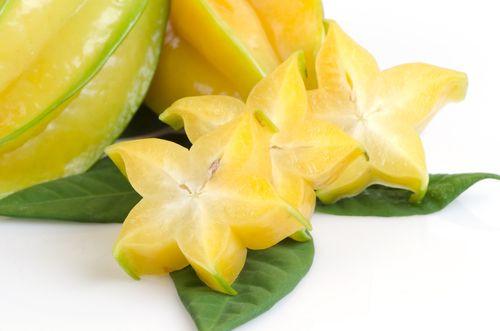From Star Fruit To Stinking Toe: 4 Exotic Fruits That Will Do Wonders For Your Body

Trying new foods from around the globe can sometimes be intimidating. However, there are a number of health benefits associated with fruits that many here in the United States have never even heard of. Not only are many of these fruits delicious, but they provide a number of health benefits.
1. West Indian Locust: (Stinking Toe)
This might have an unappealing nickname, but many Caribbean natives, especially in Jamaica, love this fruit. The name comes from the appearance of the large seed pod, which looks like a big, fat toe. Despite the fruit's foul smell, many claim that this fruit is actually delicious. Its health benefits include iron, calcium, and some even say it’s a natural energy booster.
2. Carambola (Star Fruit)
This sweet fruit gets its name from its shape after being cut in half. The tangy flavor is native to the Malayan peninsula and is grown in many parts of the world, including Southeast Asia, South America, and China. It’s a low-calorie food that provides a plethora of antioxidants, nutrients, and vitamins. However, according to Dr. Andrew Weil, “start fruit intoxication” can be prevalent in people with impaired kidney functions because of the high levels of oxalic acid and an unknown toxin. Brazilin researchers are trying to pinpoint the exact cause. Symptoms of start fruit intoxication can include, “persistent hiccups, nausea, vomiting, agitation, insomnia, mental confusion and convulsions that occur within one to five hours of eating the fruit,” Dr. Weil wrote on his site.
3. Rambutan
It’s a close cousin to the lychee, but it’s larger, and the outer skin is red with neon-colored spikes on the outside. However, like the lychee, it is a great fruit to add to a cocktail. Rambutan quenches thirst, helps the human body absorb minerals like iron and copper, and it helps to protect the body from free radicals. In Malaysia and Indonesia, it is also used in managing certain illnesses such as diabetes.
4. Jabuticaba (Brazilian Grape)
Both in texture and color, it resembles a giant grape. It’s native to Brazil and can be eaten in its natural state, or it can be used for wines or jellies. According to Food Research International, fruits with dark skins such as the Brazilian grape contain anti-inflammatory properties and a number of other health benefits, such as treating or preventing chronic obstructive pulmonary disease, diabetes, cancer, cardiovascular diseases, and stroke.



























